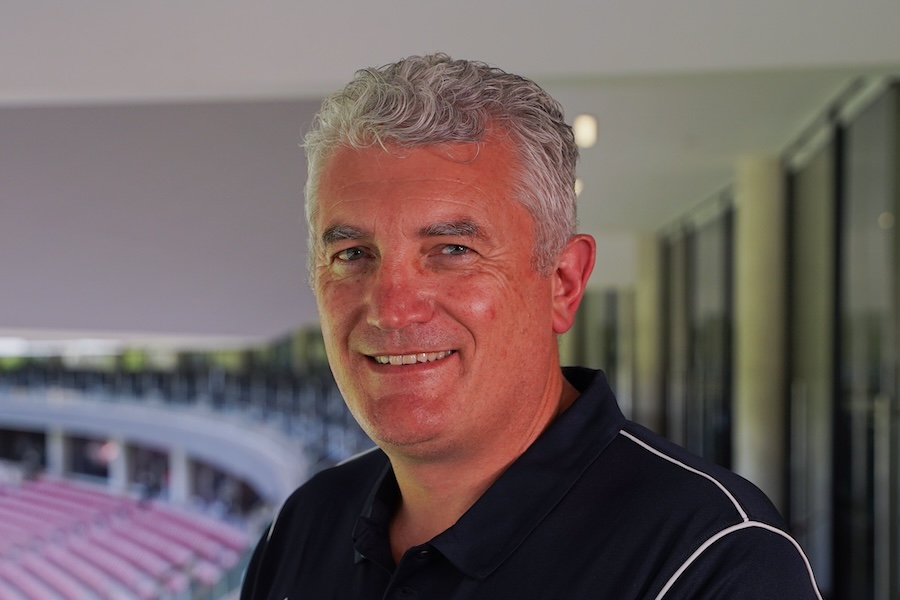The importance of professional development in governance roles
Pictured above: Heath Mills.
New Zealand Cricket Players’ Association chief executive Heath Mills already had decades of governance experience when he participated in the Institute of Directors (IoD) Company Directors’ Course – but it still has had a profound impact on him.
“I went into the course with some reservations, thinking I already knew and understood what it all involved,” says Mills. “But I came out with real clarity of the director’s role and the role of governance in general.
“It also made me appreciate how important continuing professional development is in governance. We can all get stuck in our day-to-day jobs and the issues we are dealing with and the same goes for directorships.
“It is very good to take a step back and reflect on what you are doing and learn from others’ experiences. You never stop learning.”
Mills has had extensive executive experience in professional sport over the past 22 years, including many varied and challenging experiences both domestically and internationally.
His current governance responsibilities range from chairing the Federation of International Cricketers’ Association (FICA) to serving as a director of the All Blacks Experience Ltd at Sky City. He has also recently joined the board of US-based Winners Alliance, an athlete-centred licensing, commercial partnership and content business, and he represents his rūnaka Oraka Aparima on the board of Te Tapu O Tāne, a native tree nursery and restoration business.
“I had heard about the Company Directors’ Course (CDC) and knew people who had done it but had not previously considered it myself,” says Mills.
“But when my iwi Ngāi Tahu got me involved with the All Blacks Experience, which is a joint venture between the Ngāi Tahu Tourism and New Zealand Rugby, they wanted me to complete the course – and it turned out to be awesome.”
The five-and-a-half-day CDC is the benchmark for directors and senior leaders reporting to boards with a focus on improving decision-making ability in the boardroom.
It explores the director’s roles and responsibilities and includes daily board simulation exercises, bringing case studies to life to highlight the unpredictable nature of business and the human nature of directorships.
Attendees report benefits beyond governance skill building, particularly the development of strong governance networks, personal growth and confidence in their directorships.
Topics covered on the course include best practice corporate governance, strategy in the boardroom, finance and the board’s role, directors and the law, board dynamics and culture, and risk governance.
Mills says working with and networking with fellow participants from many different governance backgrounds and experiences, as well as the highly-experienced facilitators, was very valuable for him.
“I had already been a CEO for a long time and had a lot of international experiences but all involved with my industry. So it was great to meet and work with so many different people from everything from small to medium enterprises to not for profits and public listed entities.
“People brought a whole range of different work and board experiences of governance; from a CEO point-of-view, to reporting to the board and what information the board needs. The facilitators on the course were very good and highly-experienced, and very open to sharing their own governance experiences.”
Related: Directors are working longer, seeking insurance
The programme includes a simulated board exercise. Participants work with four to five other board members addressing a scenario such as company solvency. Then, in the afternoons, each group tests their assumptions and decisions with the full group and compares them to genuine New Zealand case studies.
“The course is a very good mixture of theory and practice,” says Mills. .
“Clearly articulating the responsibilities of being a director was the biggest thing to come out of it for me. It also provided me with real clarity about the difference between an executive management role and a governance role.
“Good governance is essential because it gives all the stakeholders in any company, business or entity the confidence that the business is being well run, whether it is a public listed company with shareholders or a member organisation like ours.
“As a director, you have oversight of the business and a strong board is what keeps the management team accountable. You have to ask good questions and ensure everyone is working to a clear strategy.”
Mills says he’s put practical learnings from the programme into action in both his CEO and governance roles.
“As a CEO, I have put better structure around board papers and I have put a board work plan into place, which we didn’t have before and now FICA has done that as well.
“My experience on the course has also resulted in a number of the player associations in New Zealand working with IoD to develop a bespoke governance course for athletes who sit on our respective boards.
“It’s a one-day course shaped for what we do. We have already had rugby players, cricket players and netball players participate in that and we are about to roll another one out this year.
“And, having completed the course myself, I’ve since recommended it to a lot of friends and colleagues.”
To find out more about the Institute of Directors’ Company Directors’ Course, click here or call 0800 846 369.







